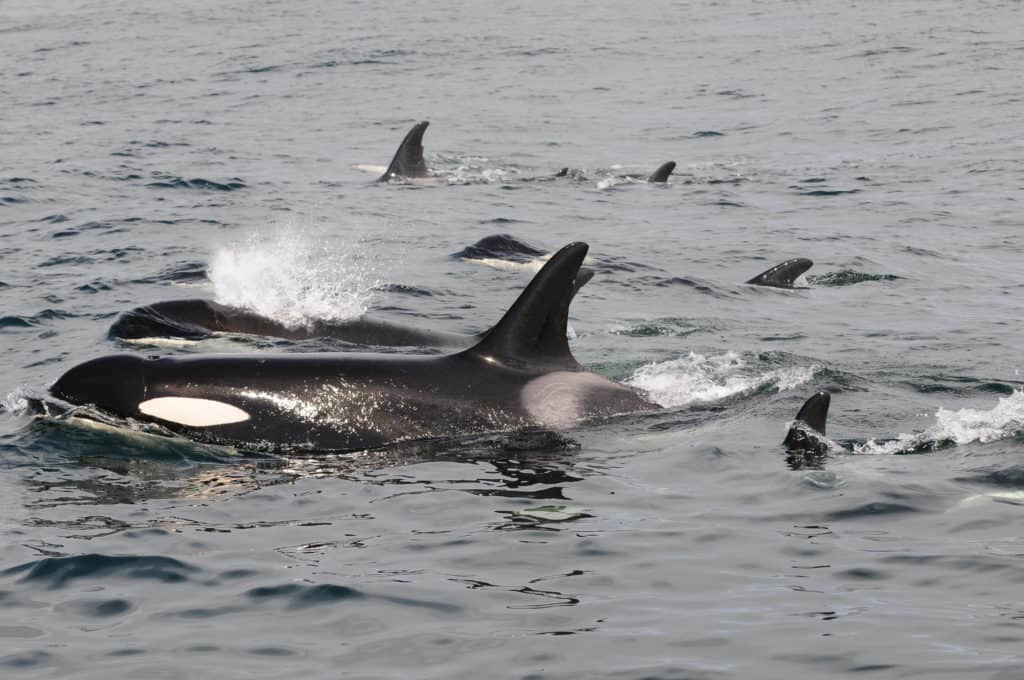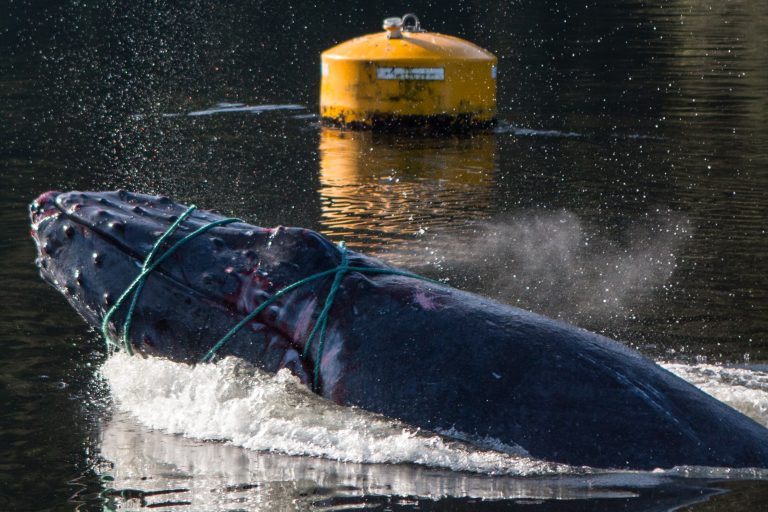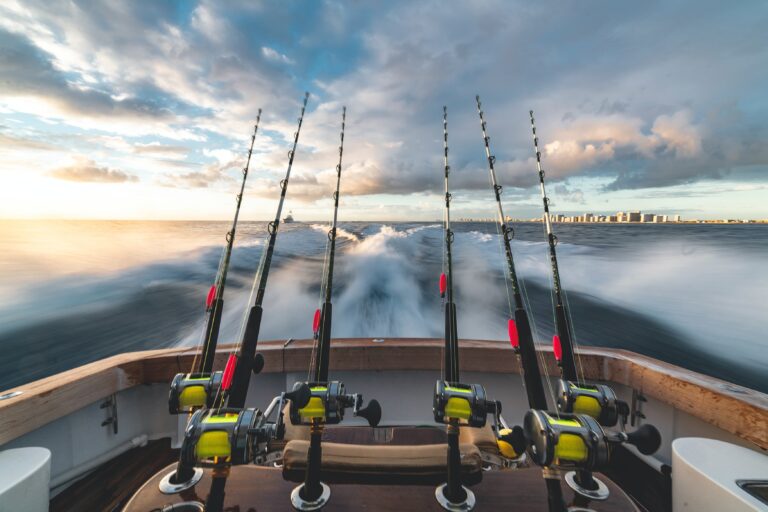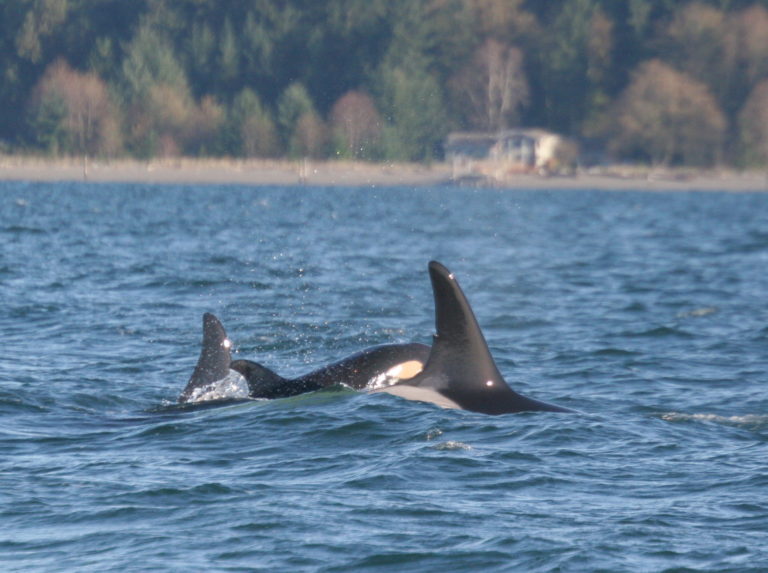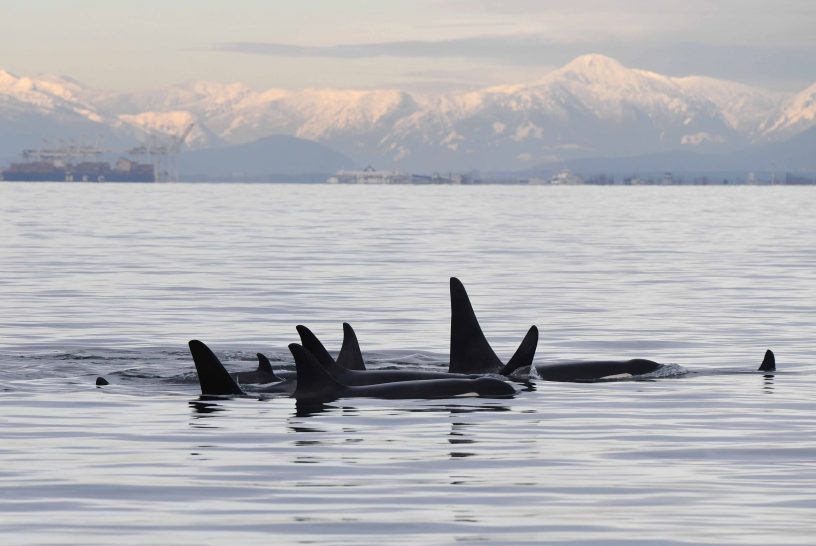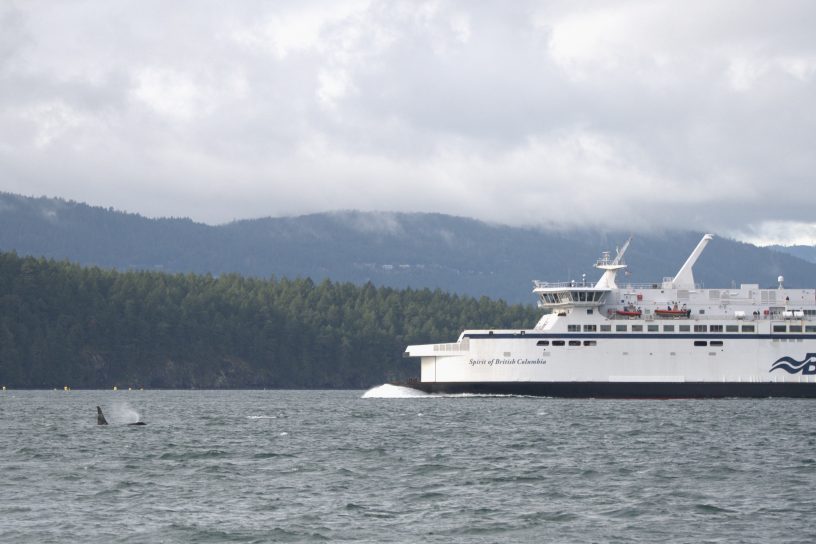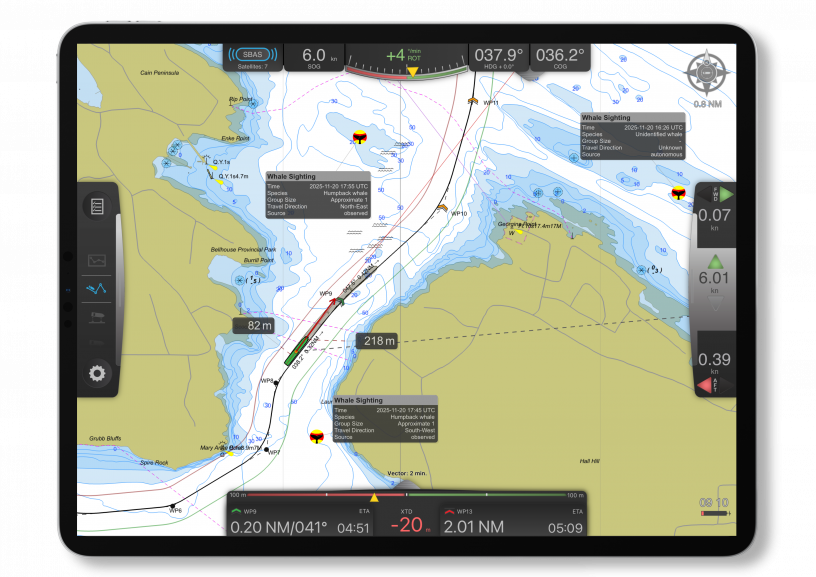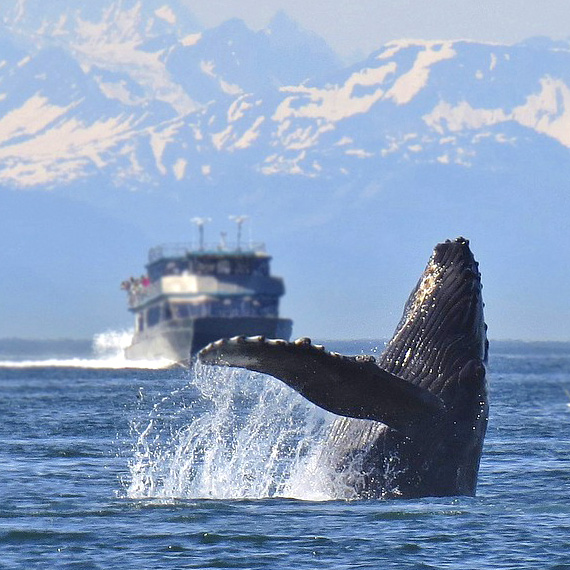New Ocean Wise Study Finds Boats Disrupt Porpoise Feeding Habits
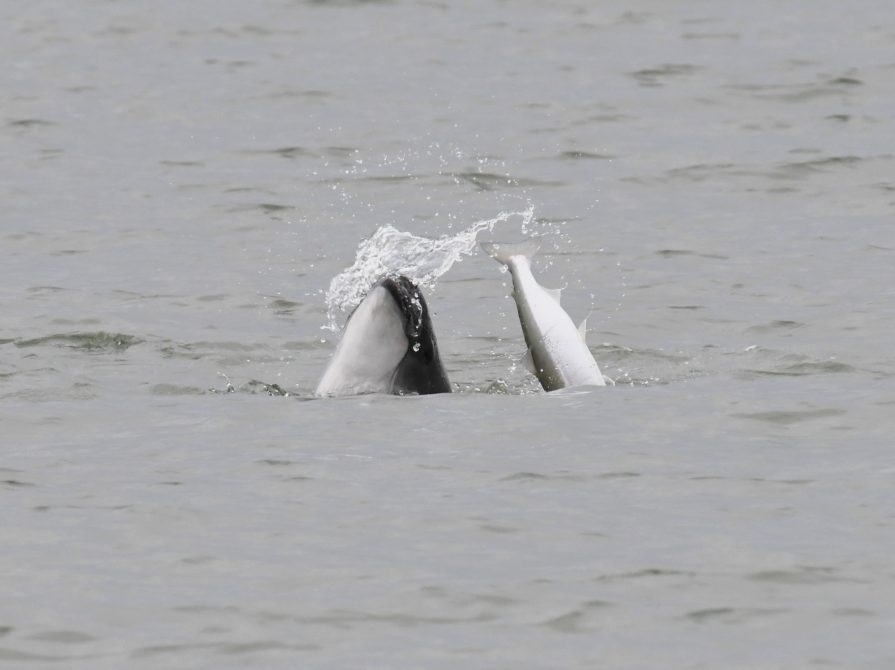
Research demonstrated that porpoises approaching the Port of Prince Rupert echolocated less when vessels were present
[October 2, 2025, Vancouver] A new study from Ocean Wise highlights the impact of vessels on one of British Columbia’s smallest marine mammals– the harbour porpoise. Influence of vessel disturbance on Pacific harbour porpoise (Phocoena phocoena vomerina) echolocation, published in Ecological Applications, found that harbour porpoises feed less when more vessels were nearby.
The study, by researchers Karina Dracott, Dr. Chloe V. Robinson, Lauren Dares, Erin Woodley, Amy Migneault, and Caitlin Birdsall explored harbour porpoise feeding trends in relation to local vessel activity in the waters surrounding the Port of Prince Rupert, one of North America’s fastest growing container ports. Busy shipping lanes serving the port overlap with prime harbour porpoise habitat, where they are found year-round.
These findings are concerning as frequent disturbances to feeding can lead to poor nutritional condition, lower reproductive success, and increased vulnerability to diseases or being hunted by other animals.
Harbour porpoises are a common but often inconspicuous species found throughout coastal waters of the northeast Pacific. Nicknamed the “shrew of the sea” for their high energy lifestyle, they must eat almost constantly – up to 10% of their body weight every day – to survive. That can mean as many as 550 attempts at catching prey per hour.
Finding this much food every day is already a challenge. Now, this study shows that foraging harbour porpoises face additional disturbance from vessels. Noise from vessel engines can disrupt harbour porpoise echolocation used to detect and catch their prey and the presence of boats may also cause porpoises to move away from an area.
Diving Into the Research
Ocean Wise has conducted research within nearshore waters of Prince Rupert, Chatham Sound, and the surrounding areas for over a decade. Since 2014, Ocean Wise researchers have been filling critical knowledge on whale and porpoise behaviour in the area collecting real-time information on cetacean presence.
To investigate how much harbour porpoises [NS1] are eating in the area, researchers used Passive Acoustic Monitoring (PAM). Researchers worked with harbour patrol crew from the Port of Prince Rupert to deploy Full waveform Porpoise Detectors (or F-PODs) in the water for up to five months at a time. This allowed them to detect the high-frequency echolocation clicks produced by porpoises as they communicate with one another and hunt prey.
By analyzing approximately three years of harbour porpoise acoustic data overlaid with local vessel traffic volumes, researchers assessed how the proportion of times porpoises caught prey changed depending on both the types and speeds of vessels travelling within approximately one kilometer of the porpoise detectors. Echoing other studies, researchers found that porpoises echolocated less when more vessels were present. Fast vessels (i.e., those travelling more than 12 knots), ferries, and tugs corresponded with a significant reduction in porpoise feeding.
For other echolocating whales on the BC coast, including the endangered Southern Resident killer whale population, voluntary vessel slowdowns have shown to reduce the sound intensity from vessels by up to 50% per cent. This, in turn, has seen an increase in foraging behavior from Southern Residents.
This study was generously funded by DP World Canada, Fisheries and Oceans Canada, and the Prince Rupert Port Authority.
Quotes:
“”Even brief noise can cost harbour porpoises a meal — and their survival. This new research from Ocean Wise supports global efforts to reduce vessel impacts and protect marine mammals” says Lasse Gustavsson, CEO and President of Ocean Wise.
“Harbour porpoises live on a nutritional knife edge, and any disruption to their feeding can have lasting impacts. While they’re a familiar sight here, the large groups we see in Prince Rupert are rare elsewhere in B.C. — making these waters especially important. Small changes in how we operate vessels could make a big difference for these elusive mammals and the health of our coastal ecosystem,” says Karina Dracott, Vice President of the North Coast Ecology Centre Society and study lead author.
How can you help to support one of B.C.’s smallest marine mammals?
- Join the Ocean Wise Sightings Network
Submit your whale, dolphin, and porpoise sightings using the Ocean Wise Whale Report App. Every report helps alert nearby vessels, prevent ship strikes, and support ongoing research.
- Be Whale Wise
If you’re boating in coastal waters, always follow Be Whale Wise guidelines. Keep your distance, reduce speed, and minimize noise.
- Take the FREE Whale-Safe Boating Course
Help keep yourself and our coastal marine mammals safe by learning about the laws and best practices for boaters. Course provided by the Marine Education and Research Society. Find out more and register here: https://whalesafeboating.org/
- Support our Work
Help us to continue our efforts on reducing threats of vessels by donating to Ocean Wise or through adopting a killer whale through our Killer Whale Adoption Program. To find out more, visit the Ocean Wise website here.
Media Contact
Rosemary Newton
Communications Manager
[email protected]
About Ocean Wise
Ocean Wise is a global conservation organization on a mission to build communities that take meaningful action to protect and restore our ocean. Through research, education, innovation, and collaboration, we are turning the tide on three major ocean challenges: plastic pollution, overfishing and climate change. By creating communities of concern that include industries, governments, and everyday citizens, we create a future where our ocean and the people who depend on it can thrive. Ocean Wise is headquartered in Vancouver, British Columbia with work reaching over two dozen countries around the globe.
Posted October 1, 2025 by Rosemary Newton
